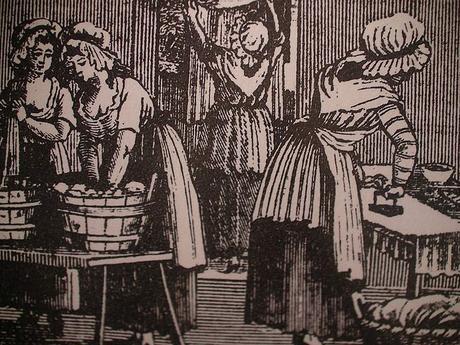Riddle me this: Who of these two are perceived to have a higher standing in society? The person who spends their weekday bustling around their home with a feather duster or the person who earns the big bucks in an office in the highest tower in the CBD?
I have never felt that being a home-maker is something to be ashamed of. Consequently, home-makers being dismissed for choosing domesticity over the rat race is astonishing: we claim to be a modernised society that recognises the value of individuals and that of groups that have been undermined for millennia, but held on to the archaic misconception that domestic work is not laudable in the slightest.

Domesticity isn’t very fashionable – many people consider suits to be much smarter than aprons. Clothing choices aside, it appears to be much more common in Singapore for people to prioritise climbing the corporate ladder as opposed to dedicating themselves to take care of the many tasks at home. Dual-income families are becoming increasingly common (and may even become the norm for the younger generations).
This is not without cause: the cost of living has risen, judging by Consumer Price Indexes (CPIs) that have been rising over the past few years. To cope with the dual income generating families, even the sandwiched middle class has resorted to hiring domestic helpers. Making up about 46% of society, middle class families reportedly view having a domestic helper as a basic right and necessity, with most hiring a live-in domestic helper or part-timer to tend to tasks at home. Domestic help is fast becoming an essential part of Singapore society that in last year’s Budget, the concessionary rate for the maid levy was cut from $120 to $60, in order to “provide greater support for middle-income families who are taking care of their children and elderly parents”.
It does seem questionable that anyone would consciously make the choice to become a home-maker in today’s cosmopolitan society. This is especially so if they are an individual with potential to bring in the big bucks, having received a prestigious education. Why ever would anyone give up the prospect of success and wealth to fill their days with household chores, and possibly depend on someone else’s income?
It is possible that some do it because they simply do not subscribe to the trappings of the high life. They might have different priorities and mindsets, content enough to readily sacrificing things like promotions and pay-checks that many of us hold as crucial markers of success in our lives.
It is hence rather perplexing that some of us feel the need to disparage those who abandon the high life for the home life. Someone who chose to become a home-maker simply may have decided to prioritize something other than money. Perhaps they have a vulnerable family member who needs looking after, or a special needs child to home-school. More often than not, we tend to question the choices that people make based on our own perspectives, and forget to stop for a second and consider their situation from another point of view.
I personally feel that a conscious choice and a lot of willpower goes into the occupation of a home-maker – a challenging calling full of hard work and obstacles, especially so if it is a one-man show. Just the idea of carrying out an entire house’s worth of cleaning, managing of finances, cooking, and caring for the wellbeing of everyone in the family, makes me weak in the knees! Unfortunately, for some reason, this occupation is dismissed as something simple or effortless, despite the amount of planning that must goes into running a household. Home-makers essentially have a Sisyphean task on their hands.

It’s strange that we take for granted the magnitude of care that home-makers accord to essential tasks. How many times have we outwardly appreciated finding nice clean towels in our cupboards, or a shirt that you really needed to wear that day already freshly laundered and ironed? These people essentially run our lives in the background, and make sure that we are able to perform our best out there by ensuring we have a comfortable place to rest, relax, study and play. In short, they are our support systems.
In any case, not all home-makers crack open a beer after they are done with the chores of the day. Although some stay at home, some also work from there. Besides flexible work-from-home arrangements which allow employees to spend more time at home and work exclusively from home, many Singaporean home-makers also have small businesses of their own. There are people who are private tutors who sustain their student numbers through word of mouth; as well as skilled craftsmen who knit a mean sweater to sell on platforms like Etsy. Even though it’s not a 9-5 job in a skyscraper somewhere, home-makers like these exhibit an entrepreneurial spirit that is heartening. These people have found a way to break the preconceived notion that we have to choose between making money or becoming a homebody who is a domestic god or goddess.
The one way we can show our appreciation and acknowledgement is through perhaps according them the respect they deserve. Mother or father, husband or wife, domestic helper or hired helper, they all deserve the recognition that comes with this challenging job. These people may not bring home the big bucks, and their jobs may be largely hidden from where we stand, but they are akin to the foundation of any building: we depend on them heavily for their support.
Emily Tan
This article was originally published on The Blue and Gold SMU. Read the original article.


